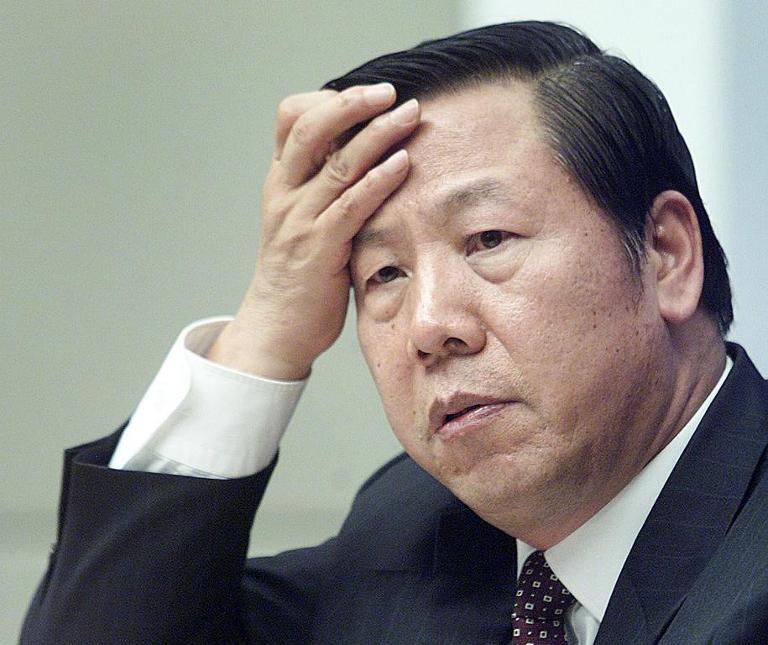
Former China central bank governor 'helping graft probe': report
Dai Xianglong, who headed the People's Bank of China (PBoC) from 1995 to 2002, "is cooperating with" the ruling Communist Party's internal watchdog and has not been accused of wrongdoing, Bloomberg News said, citing people familiar with the matter.
But the reported probe makes Dai the latest senior official to become embroiled in President Xi Jinping's much-publicised anti-graft campaign.
News of the inquiry into Dai's family wealth was picked up by mainland news websites, but was soon deleted by China's vast army of Internet censors.
The Communist Party watchdog, known as the Central Commission for Discipline Inspection (CCDI), decided to investigate Dai's family while it was probing another top official, spymaster Ma Jian, Bloomberg reported.
Ma was placed under investigation in January for alleged "serious disciplinary violations" -- generally a euphemism for graft.
No notices regarding Dai had been posted on the CCDI's website as of Wednesday evening.
Other formerly high-flying officials have fallen in the anti-corruption campaign, most notably Zhou Yongkang, once responsible for China's security ministry. Zhou was charged last week with bribery, abuse of power and disclosing state secrets and could face trial within the month.
After serving as central bank governor, Dai later became mayor of the port city of Tianjin near Beijing, and then head of China's social security fund from 2008 to 2013.
In 2012, Dai was the subject of a New York Times expose detailing wealth amassed by his family members through the purchase of shares in Ping An Insurance and other companies that were under his regulatory authority.
A firm with close ties to Dai's son-in-law and other relatives bought a large stake in Ping An for $55 million in 2002; five years later the stake was worth $3.1 billion, according to The New York Times.
Another company that benefited from buying Ping An shares was controlled in part by relatives of former prime minister Wen Jiabao, the newspaper reported.
Communist authorities have touted Xi's anti-corruption drive as a root-and-branch reform of the party to address an issue that causes deep and widespread public anger.
But critics note that China has failed to implement institutional safeguards against graft, such as public asset disclosure, an independent judiciary, and free media, leaving the effort open to being used for political faction-fighting.

Legal Disclaimer:
MENAFN provides the
information “as is” without warranty of any kind. We do not accept
any responsibility or liability for the accuracy, content, images,
videos, licenses, completeness, legality, or reliability of the information
contained in this article. If you have any complaints or copyright
issues related to this article, kindly contact the provider above.

















Comments
No comment